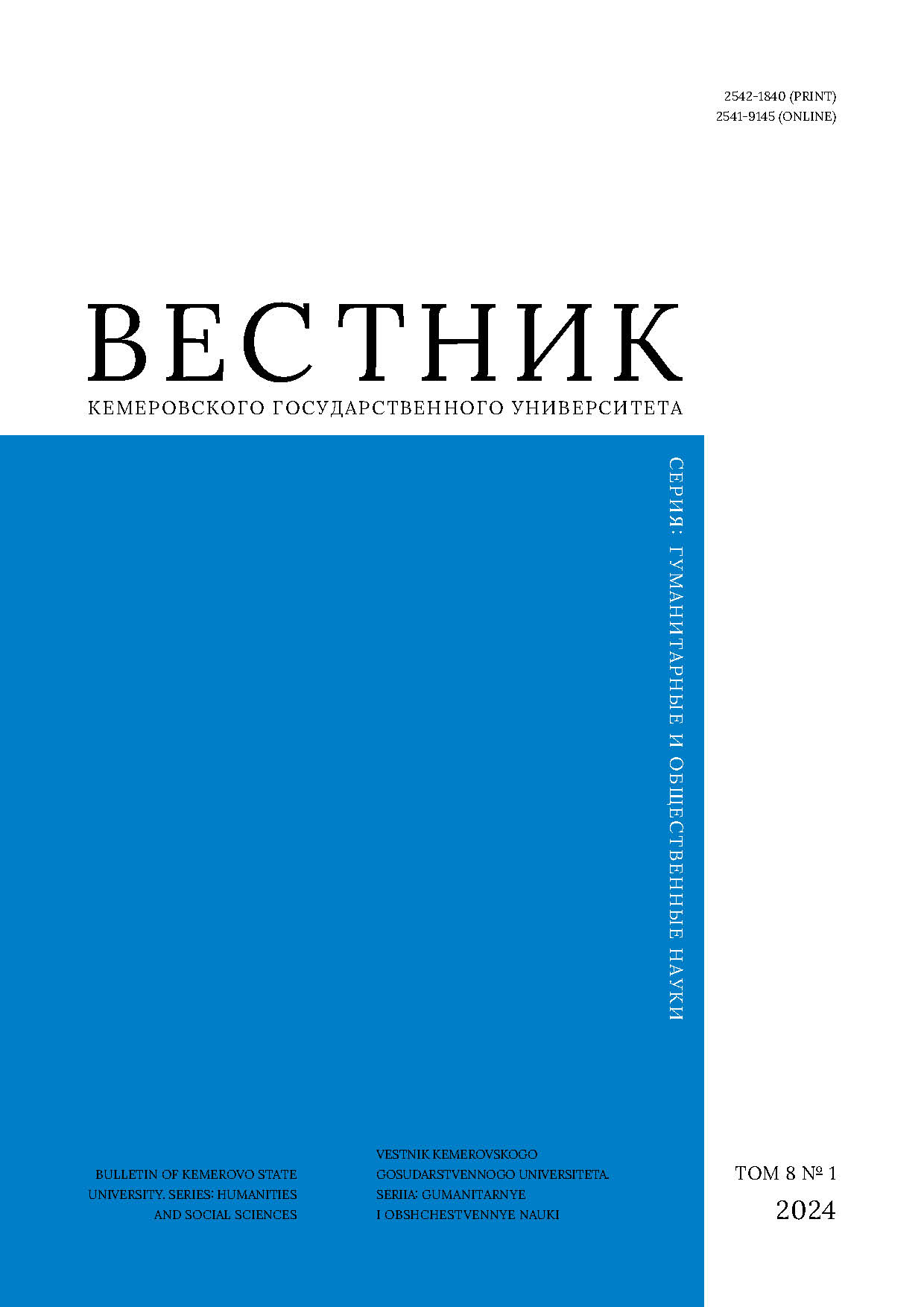graduate student from 01.01.2024 until now
Moscow, Russian Federation
Moskva, Moscow, Russian Federation
As an integral part of human culture, music affects cognitive processes and emotional states. This research featured the impact that different musical genres produce on cognitive processes. The experiments involved the survey method, as well as standard psychological tests and tools for cognitive assessment that measured concentration, memory capacity, and mood. The study involved 135 university students aged 18–27 y.o.; they were divided into nine independent groups of 15 people in each. The students were exposed to musical compositions of three genres: classical music, rock music, and electronic music. Each genre covered three test groups. Their cognitive performance was analyzed before and after the experimental stage. The differences in cognitive performance obtained for various musical genres can have practical application in education and psychotherapy. Classical music increased attention, enhanced memory capacity, and stabilized mood whereas rock music and electronic music had a multidirectional effect. This article casts a new perspective on the mechanisms of interaction between music and cognitive processes, thus expanding the existing database in the fields of psychology, neuroscience, and cognitive sciences.
cognitive processes, music, students, attention, memory, mood
1. Levitin D. J., Tirovolas A. K. Current advances in the cognitive neuroscience of music. Annals of the New York Academy of Sciences, 2009, 1156(1): 211-231. https://doi.org/10.1111/j.1749-6632.2009.04417.x
2. Thoma M. V., La Marca R., Brönnimann R., Finkel L., Ehlert U., Nater U. M. The effect of music on the human stress response. PLoS ONE, 2013, 8(8): 1-12. https://doi.org/10.1371/journal.pone.0070156
3. Husain G., Thompson W. F., Schellenberg E. G. Effects of musical tempo and mode on arousal, mood, and spatial abilities. Music Perception, 2002, 20(2): 151-171. https://doi.org/10.1525/mp.2002.20.2.151
4. Bottiroli S., Rosi A., Russo R., Vecchi T., Cavallini E. The cognitive effects of listening to background music on older adults: processing speed improves with upbeat music, while memory seems to benefit from both upbeat and downbeat music. Frontiers in Aging Neuroscience, 2014, vol. 6. https://doi.org/10.3389/fnagi.2014.00284
5. Miendlarzewska E. A., Trost W. J. How musical training affects cognitive development: rhythm, reward and other modulating variables. Frontiers in neuroscience, 2014, vol. 7. https://doi.org/10.3389/fnins.2013.00279
6. Kučikienė D., Praninskienė R. The impact of music on the bioelectrical oscillations of the brain. Acta medica Lituanica, 2018, 25(2): 101-106. https://doi.org/10.6001/actamedica.v25i2.3763
7. Rickard N. S., Toukhsati S. R., Field S. E. The effect of music on cognitive performance: Insight from neurobiological and animal studies. Behavioral and Cognitive Neuroscience Reviews, 2006, 4(4): 235-261. https://doi.org/10.1177/1534582305285869
8. Dolegui A. S. The Impact of Listening to Music on Cognitive Performance. Inquiries Journal, 2013, 5(09).
9. Jiang L., Zhang R., Tao L., Zhang Y., Zhou Y., Cai Q. Neural mechanisms of musical structure and tonality, and the effect of musicianship. Frontiers in Psychology, 2023, (14): 1-12. https://doi.org/10.3389/fpsyg.2023.1092051 EDN: https://elibrary.ru/LQUCMP
10. Bianco R., Novembre G., Keller P. E., Kim S. G., Scharf F., Friederici A.D., Villringer A., Sammler D. Neural networks for harmonic structure in music perception and action. Neuroimage, 2016, 142: 454-464. https://doi.org/10.1016/j.neuroimage.2016.08.025
11. Goltz F., Sadakata M. Do you listen to music while studying? A portrait of how people use music to optimize their cognitive performance. Acta Psychologica, 2021, 220: 1-11. https://doi.org/10.1016/j.actpsy.2021.103417
12. Kučikienė D., Praninskienė R. The impact of music on the bioelectrical oscillations of the brain. Acta Med Litu, 2018, 25(2): 101-106. https://doi.org/10.6001/actamedica.v25i2.3763
13. Ruthenberg J. A. The effects of classical music on memory. Unisa Psychologia, 2003, 29(1): 76-80.
14. Derbukov E. G., Dvortsova E. V. Effect of listening to classical music on the psycho-emotional status of psychology students. Nauka cherez prizmu vremeni, 2023, (1): 80-83. (In Russ.) https://www.elibrary.ru/bcuotp
15. May C. Does Music Boost Your Cognitive Performance? Scientific American, 2020, 31(3): 8.
16. Fetisova E. N. Existential therapy of rock music (on the example of "Russian" rock). Modern science: actual problems of theory and practice. Series: Cognition, 2020, (5): 105-108. (In Russ.) https://doi.org/10.37882/2500-3682.2020.05.19 EDN: https://elibrary.ru/EKIRBH
17. Wang S. The Effects of Music on Different Cognitive Performances. Journal of Education, Humanities and Social Sciences, 2023, 8: 717-723. https://doi.org/10.54097/ehss.v8i.4341 EDN: https://elibrary.ru/HPBIUE
18. Bocado J., Tapanan Jr. M. L., Parcon R., Quijano J. L., Rodriquez M. J. The cognitive effects of electronic dance music to auditory learners. European Journal of Physical Education and Sport Science, 2022, 8(5): 81-90.
19. Gonzalez M. F., Aiello J. R. More than meets the ear: Investigating how music affects cognitive task performance. Journal of Experimental Psychology: Applied, 2019, 25(3): 431-444. https://doi.org/10.1037/xap0000202
20. Korsakova M. Brain and music: how feelings express themselves in music and why anyone can understand it. Moscow: AST, 2022, 304. (In Russ.)
21. Brunetti R., Indraccolo A., Del Gatto C., Farina B., Imperatori C., Fontana E., Penso J., Ardito R. B., Adenzato M. eStroop: Implementation, Standardization, and Systematic Comparison of a New Voice-Key Version of the Traditional Stroop Task. Frontiers in Psychology, 2021, vol. 12. https://doi.org/10.3389/fpsyg.2021.663786
22. Lezer F. Memory training. Moscow: Mir, 1979, 167. (In Russ.)
23. Osin E. N. Measuring positive and negative affect: development of a Russian-language analogue of panas. Psychology. Journal of the Higher School of Economics, 2012, 9(4): 91-110. (In Russ.) https://www.elibrary.ru/qyxapb
24. Zolotareva A. A. Validity and reliability of the Russian version of the Rosenberg self-esteem scale. Herald of Omsk University. Series "Psychology", 2020, (2): 52-57. (In Russ.) https://doi.org/10.24147/2410-6364.2020.2.52-57 EDN: https://elibrary.ru/UAKGXS


















